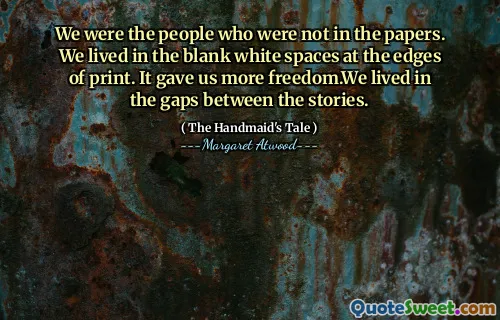If you can call it talking, these clipped whispers, projected through the funnels of our white wings. It's more like a telegram, a verbal semaphore. Amputated speech.
In Margaret Atwood's "The Handmaid's Tale," communication among characters is stripped down to the most basic form, resembling whispers that lack depth and meaning. This reduction of speech illustrates the oppressive environment in which the characters live, where freedom of expression is heavily restricted. Rather than engaging in full conversations, they convey messages in a fragmented manner, reminiscent of telegrams, implying that their voices have been silenced.
The phrase "amputated speech" poignantly encapsulates the impact of the dystopian society on communication. It suggests that the characters' ability to articulate their thoughts and feelings has been severed, leaving them with only the barest essentials needed to convey a message. This lack of true dialogue emphasizes the emotional and psychological confinement experienced by individuals, highlighting the broader themes of control and subjugation in the narrative.






